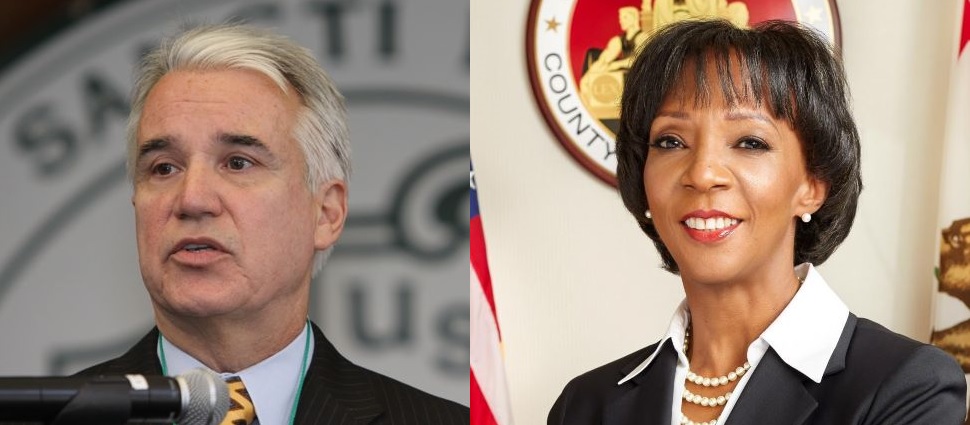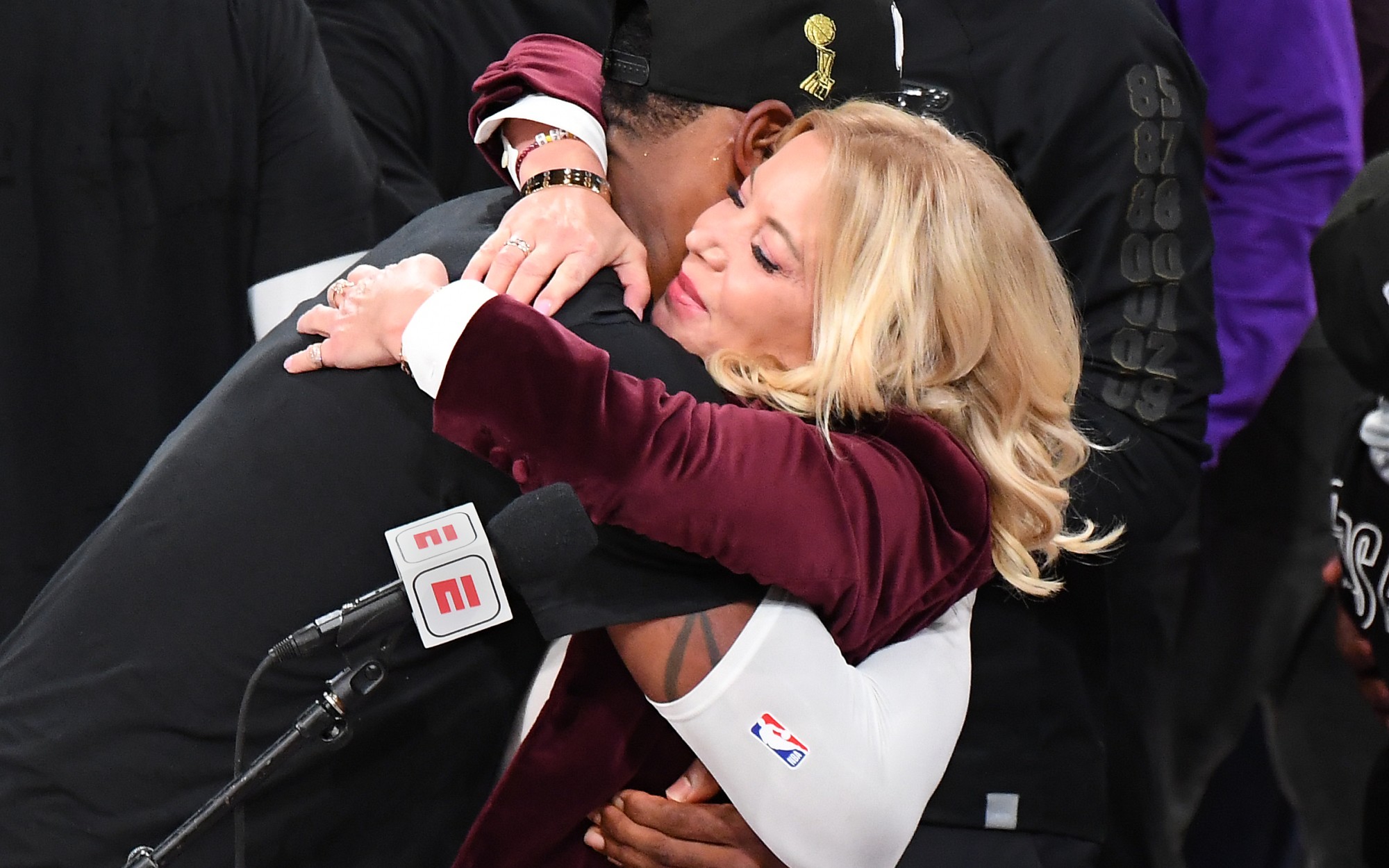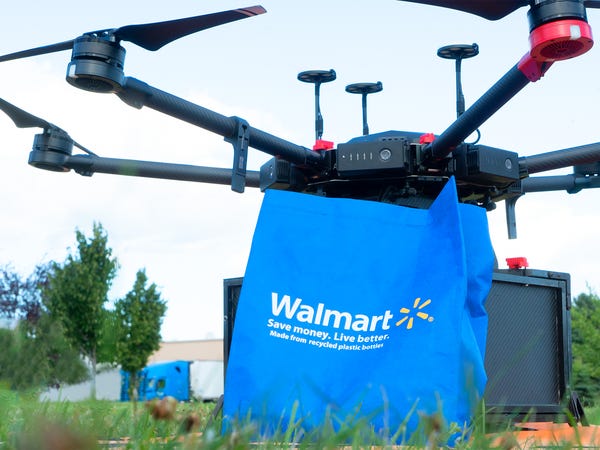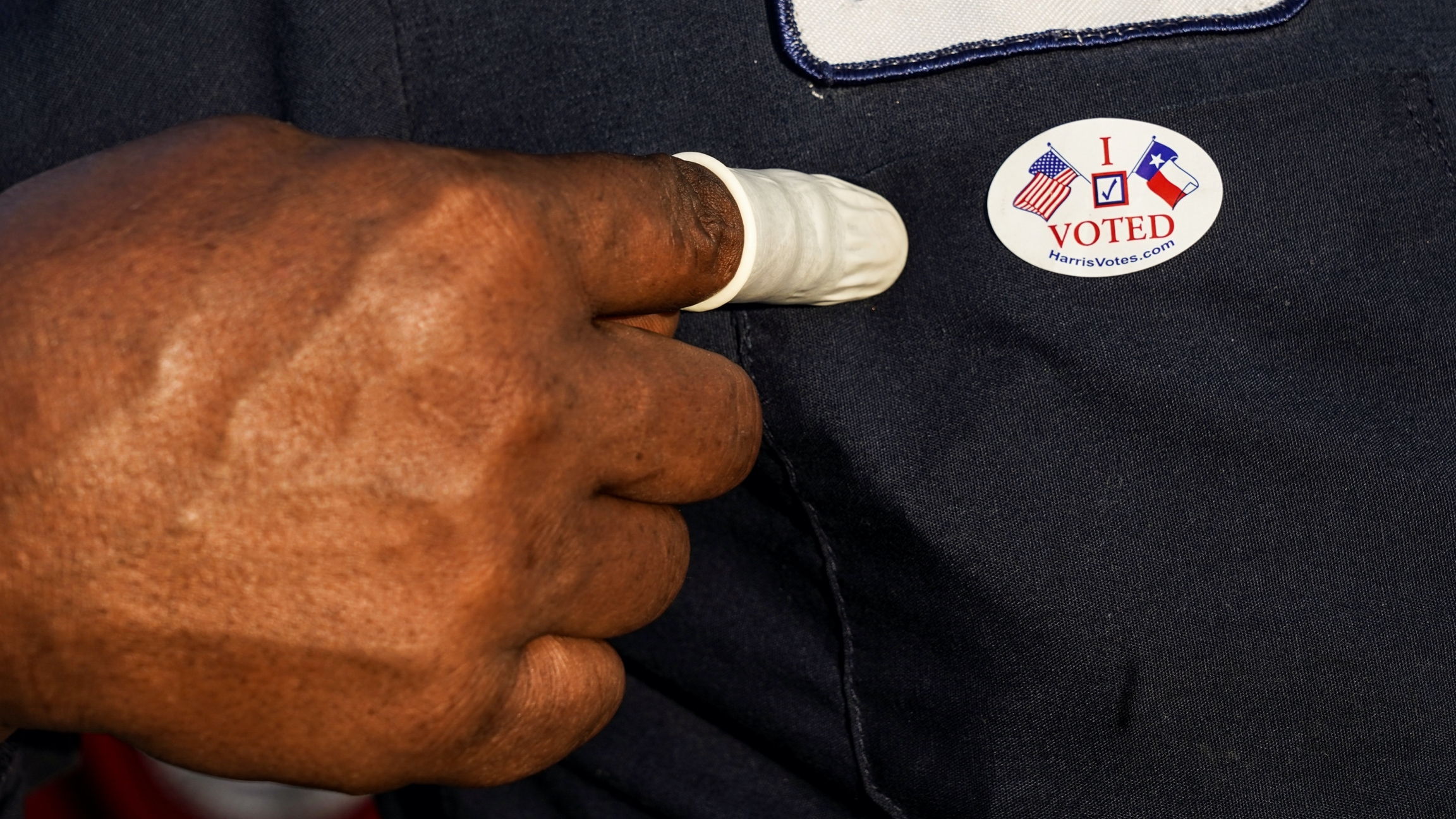
Lacey loses L.A. mayoral support
By Terry Miller
Aside from the 2020 presidential race, there are countless heated debates going on in every city and county in the land. In Los Angeles County, the most heated race is for the powerful position of district attorney.
With the colossal challenges facing Los Angeles County, a high-profile district attorney’s duties typically include reviewing police arrest reports, deciding whether to bring criminal charges against arrested people and prosecuting criminal cases in court. 2020 has offered a unique set of challenges for the D.A.’s office.
Incumbent Jackie Lacey runs an office of nearly 1,000 deputy district attorneys responsible for the county, which includes dozens of police departments. Lacey has received significant criticism for her support of the death penalty and especially her handling of police officer and sheriff’s shootings.
In March 2019, Governor Gavin Newsom signed an executive order imposing a halt on the death penalty in California. “The intentional killing of another person is wrong and as Governor, I will not oversee the execution of any individual,” said Newsom. “Our death penalty system has been, by all measures, a failure. It has discriminated against defendants who are mentally ill, black and brown, or can’t afford expensive legal representation. It has provided no public safety benefit or value as a deterrent. It has wasted billions of taxpayer dollars. Most of all, the death penalty is absolute. It’s irreversible and irreparable in the event of human error.”
According to a report from the ACLU, prosecutors from Lacey’s office have continued to seek the death penalty despite this order. “As a career prosecutor, I believe the death penalty is the appropriate punishment for some crimes – a serial killer, someone who tortures and kills a young child, the person who rapes and then kills the victim to silence his only witness or someone who kills a police officer trying to do her job safely,” Lacey said in the statement in June 2019.
Out of numerous cases during her tenure as D.A., Lacey has only filed criminal charges against law enforcement officers in two cases, according to Los Angeles Magazine. Once against off-duty ex-Los Angeles Police Department Officer Henry Solis who in 2015 fatally shot a man in Pomona and then fled to Mexico. Solis was found guilty of second-degree murder in February. The second instance was against sheriff’s Deputy Luke Liu who pleaded not guilty to voluntary manslaughter in the 2016 fatal shooting of a fleeing driver in Norwalk. According to the Los Angeles Times, Liu is “the first officer to face prosecution for an on-duty shooting since 2000, when LAPD Officer Ronald Orosco was accused of shooting an unarmed motorist in the back in September of that year during a dispute over a traffic citation.”
With the national focus on police use of deadly force, Lacey’s campaign for reelection took a tailspin when her husband, David, pulled a gun on Black Lives Matters protesters in March of this year. He demanded that protesters get off his porch and warned that he would shoot them if they didn’t comply. The media attention was massive.
Lacey later apologized for her husband’s actions but the fallout that followed was monumental, especially in an election year. At a press conference after the incident, Lacey told reporters “We expect that people will exercise their First Amendment right, but our home is our sanctuary. I do not believe it is fair or right for protesters to show up at the homes of people who dedicate their lives to public service.” At the time, Lacey said she had received death threats, and on numerous occasions been followed and confronted while with her family.
In August, California Attorney General Xavier Becerra charged David with three misdemeanor counts of assault with a firearm.
Black Lives Matter Los Angeles has been critical of Lacey over her handling of multiple shootings by law enforcement. According to Time magazine, “One of the most notable incidents was the shooting of Ezell Ford, an unarmed, mentally ill black man who was killed by police in 2014.” Lacey’s office decided not to prosecute the officers involved. “You have an officer who honestly believes that he’s about to be killed,” Lacey argued in 2017. “He has the right to defend himself.”
Ahead of the election, on Oct. 6, Lacey announced the release from prison of Derrick Harris, a Los Angeles man wrongfully convicted of robbery, illegally possessing a firearm and violating a gang injunction. “This case underscores the important ethical duty of every prosecutor to continue to seek justice, even if it requires us to admit that a mistake was made,” District Attorney Lacey said.
Earlier this year, as massive protests exploded in many cities across the country following the killing of George Floyd by Minneapolis police and cries for police reform and defunding the police grew louder, calls for Lacey’s ouster gained traction.
Lacey, who was elected in 2012 as the first African American woman to run the office, is facing a major challenge from George Gascón who worked for the L.A.P.D. early in his career and is pitching himself as a progressive reformer as opposed to Lacey’s tough-on-crime approach.
Newsom appointed Gascón to be San Francisco’s police chief in 2009 and district attorney in 2011, where he served until recently. Gascón’s time as a police officer is now under scrutiny. Former L.A.P.D. Chief Bernard Parks, who supports Lacey, told the Los Angeles Times that “he believes Gascón was lenient when he sat on disciplinary boards and dismissed his progressive stances as ‘inauthentic’ and mostly designed to benefit his political aspirations.”
Connie Rice, a civil rights attorney and co-founder of the L.A.P.D.’s Community Safety Partnership program, told the The Times that “Gascón was one of a few ‘inside mavericks’ who used his position ‘to challenge the culture rather than perpetuate it.’”
Both Lacey and Gascón met in a debate co-sponsored by KPCC/LAist and the L.A. Times earlier this month.
“The difference between [D.A.] Lacey and I, is that I continue to learn and evolve,” Gascón said about gang enhancements during the debate.
Lacey countered by arguing that Gascón wants to “leave residents helpless.”
Lacey also challenged Gascón’s ability to try a case as he’s never done so. “There’s nothing like trying a case to understand the nuances of the law, of witnesses, how jurors think and what you need in order to prove cases.”
“We are not hiring someone who was a trial lawyer in the 1980s and ’90s and continues to want to do business like we’re in the ’80s and ’90s,” Gascón rebutted.
The two went back and forth on issues of race, police shootings and gangs.
Recently, Los Angeles Mayor Eric Garcetti withdrew his endorsement of Lacey. Garcetti said Gascón “will help our county shift the burden from the criminal justice system and jails toward diversion, intervention, and re-entry programs that save money and save lives.”
Garcetti is only the latest politician to rescind his endorsement. Reps. Adam Schiff and Ted Lieu rescinded their Lacey endorsements amid protests and calls for change but did not endorse Gascón.
He has also been endorsed by Patrisse Cullors, the co-founder of Black Lives Matter, and despite being a former Republican, has also been endorsed by Senators Kamala Harris, Bernie Sanders, Elizabeth Warren, and Governor Newsom.
“He famously reduced crime while reducing incarceration, and he burnished a national reputation as a leader in the fight to reform our dated system of justice,” Newsom said in a statement announcing his support for Gascón.
Lacey has support from two Los Angeles county law enforcement unions, the Los Angeles Police Protective League and the Association for Los Angeles County Sheriffs. She also has the support of Senator Dianne Feinstein, San Francisco Mayor London Breed.
According to the Associated Press, “Among Gascón’s backers are billionaire George Soros, who has given $1.5 million, philanthropist Patty Quillin who gave $1.25 million and her husband, Netflix CEO Reed Hastings, who donated $500,000. Most of Lacey’s money has come from police unions and other public safety groups.”






